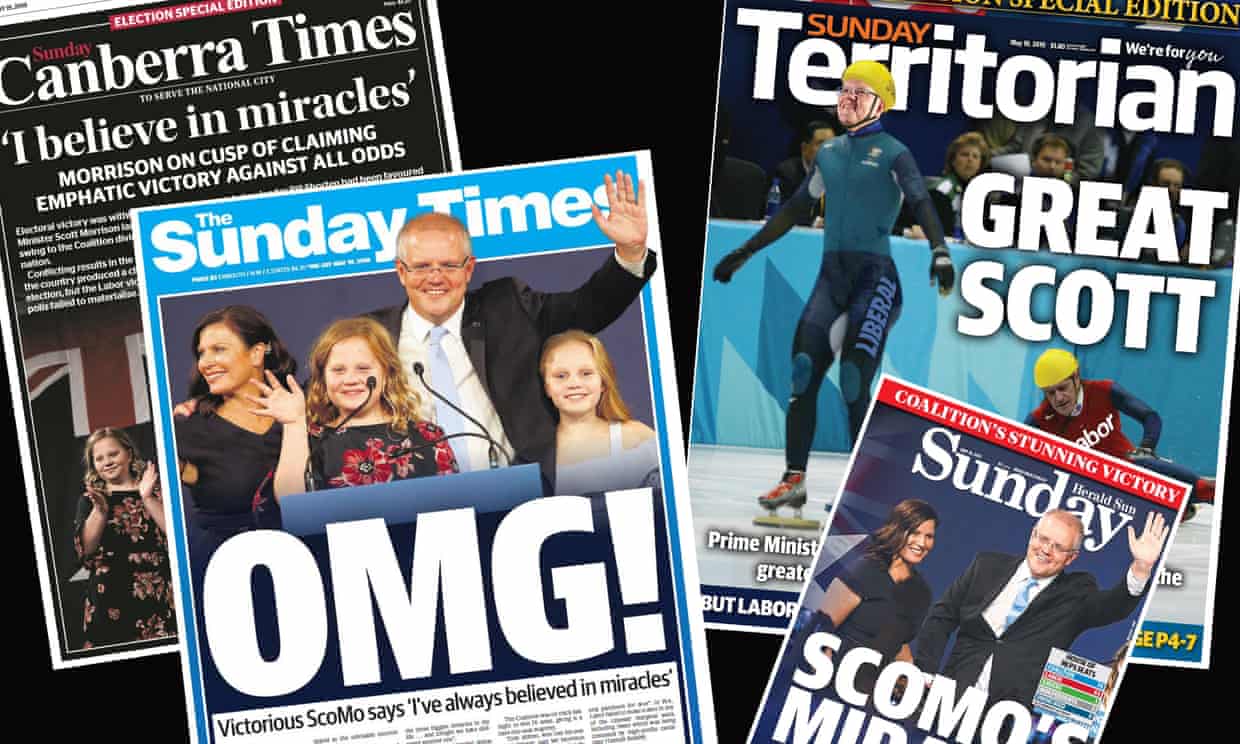Australians are avoiding the news and think it's too negative, survey finds
Digital Media Report reveals trust in news is declining and Australians are less interested in politics than others
• Truth decay: why personal values are poisoning Australians’ news consumption
• Truth decay: why personal values are poisoning Australians’ news consumption
Australians are becoming less interested in news, with 62% of respondents in a new survey reporting they avoid consuming it occasionally, sometimes or often. Local news consumers are also more likely than readers and viewers in other countries to think our news is too negative.
The latest annual Digital Media Report from the University of Canberra in collaboration with the Reuters Institute and the University of Oxford finds 44% of Australian news consumers feel the news is too negative (compared to the international average of 39%), and more Australians are inclined to think the news isn’t relevant to them (28% compared to a global average of 25%).
Australians also consume news more shallowly than readers and viewers in other countries – meaning Australia has the highest percentage of people consuming news once a day or less at 48% (compared to 34% globally). We are also less interested in politics than the global average.
Globally, trust in news is declining, with falls in the countries surveyed of around 2%. In Australia, the annual drop was 6%, from 50% to 44% in 2019. But Australians still trust their news more than consumers in the United Kingdom (40%) and the United States (32%).
Distrust in social media has also increased from 45% in 2018 to 49% in 2019.
A majority of news consumers in Australia think media outlets do a good job of keeping them across events, and helping people understand issues. But less than half of the people surveyed believe news organisations are successful in holding powerful figures to account – which is one of the key functions of the media in a liberal democracy.
These perceptions are shaped by the political leanings of news consumers. Right-leaning people are more likely to think news outlets succeed in holding people to account (56%) compared to 43% of people in the centre and 46% of left-leaning readers and viewers.
Australian politics live podcast
Why are Australians avoiding the news?
Australians are also more attentive to fake news than news consumers elsewhere. The global average for concern about misinformation in the survey is 55% and in Australia, it’s 62%.
People following politics closely are more concerned about fake news than consumers ambivalent about politics, which the authors of the report attribute to “the high level of public debate about political misinformation and foreign interference in the 2016 election, and concern about possible interference in the Australian federal election”.
The survey suggests right-leaning news consumers are more likely than left-leaning consumers to worry about whether information online is real or fake, and much more likely than consumers in the centre to have that concern.
The research indicates that a proportion of news consumers (36%) are taking active steps to fact check material they are reading and viewing by checking reports across multiple sources, and as a consequence of that activity, they are seeking out more reliable news sources (26%).
But it also indicates people who are undecided about their political orientation are less likely to fact check than people with rusted-on allegiances, and people with lower levels of education and income are not as likely to go through verification exercises as people with more resources.
Using Facebook for news has decreased by 9% since 2016, but there have been increases in the use of YouTube, Snapchat and Instagram for news consumption. The survey also suggests there have been decreases in online engagement across sharing and liking activity.
Younger Australians, generation Z and generation Y, are more likely to use social media as their main source of news. People who are part of WhatsApp or Facebook groups are more active news sharers than people outside those networks.
While Australians would rather sign up for a streaming service, like Netflix, than an online news service, around 14% of the sample pays for online news, which is close to the global average. Men are more likely to subscribe than women.
Australia's media...
… has never been more concentrated, at a time when clear, factual reporting is so desperately needed. Guardian Australia will hold the new Coalition government to account and continue to report on the escalating climate emergency. We are editorially independent, free from commercial and political bias – this means we can promise to keep delivering quality journalism without favour or interference.
More people are reading and supporting our independent, investigative reporting than ever before. And unlike many news organisations, we have chosen an approach that allows us to keep our journalism accessible to all, regardless of where they live or what they can afford.
The Guardian is editorially independent, meaning we set our own agenda. Our journalism is free from commercial bias and not influenced by billionaire owners, politicians or shareholders. No one edits our editor. No one steers our opinion. This is important as it enables us to give a voice to those less heard, challenge the powerful and hold them to account. It’s what makes us different to so many others in the media, at a time when factual, honest reporting is critical.
Every contribution we receive from readers like you, big or small, goes directly into funding our journalism. This support enables us to keep working as we do – but we must maintain and build on it for every year to come. Support The Guardian from as little as $1 – and it only takes a minute. Thank you.

![We The People ! [ Daily News ]](https://blogger.googleusercontent.com/img/b/R29vZ2xl/AVvXsEi7PNflLYO2id_pgKevcLALLVghNAUKitpe3VQpV5fJatRfWJCD5mtlJzat6fUgV7ymgMyAe1yNdVgoDeLbqc_5gXJpSzYE50pYDire_RBxd0JWLL96a-4NaYWD4QJ3EAFuXN6gNo1L5gs/s1600/LogoMakr_5zKJMi.png)













No comments:
Post a Comment